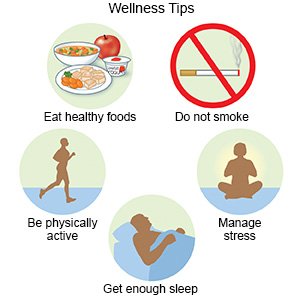Chronic Fatigue Syndrome
Medically reviewed by Drugs.com. Last updated on Apr 6, 2025.
Chronic fatigue syndrome (CFS) is a long-term illness that causes severe physical and mental exhaustion. The extreme tiredness may make it hard or impossible to do daily tasks.
DISCHARGE INSTRUCTIONS:
Call 911 if
you think about hurting yourself or someone else.
Contact your healthcare provider if:
- You have a fever.
- You have new symptoms that you are worried about.
- You have questions or concerns about your condition or care.
Manage your CFS symptoms:
- Exercise regularly as directed. Ask your healthcare provider about the best exercise plan for you. You may need to start with low intensity exercise for short periods of time. Exercise can help decrease your symptoms and help you have more energy. You may be able to increase your exercise as you get stronger. Start slowly and gradually increase activity so your symptoms do not get worse.
- Rest as needed. Take naps and change your schedule to fit your energy level. You may need to take 5 to 10 minute rest periods every hour or more. Try to go to bed and wake up at the same times every day.
- Learn new ways to relax , such as deep breathing, meditation, or muscle relaxation. Ask for more information about relaxation methods that may be right for you.
- Care for your sore joints or muscles. Apply heat for 20 to 30 minutes every 2 hours for as many days as directed. Ice may also help. You can alternate heat and ice. Apply ice for 15 to 20 minutes every hour or as directed. Use an ice pack, or put crushed ice in a plastic bag. Cover it with a towel before you apply it to your skin.
- Keep a record of your activities and symptoms each day. This record will help you learn when you have the most energy. You will also be able to follow your progress. Bring this record with you to your follow-up visits.
- Get support. Talk to your healthcare provider, counselor, family, or friends about your feelings. Cognitive behavior therapy can teach you how to manage changes in your relationships and lifestyle. Family therapy can help you and your family members manage the stress of CFS.
 |
Treatment options
The following list of medications are related to or used in the treatment of this condition.
Medicines:
- Medicines may be given to help decrease your symptoms, such as joint pain, depression, anxiety, or fever.
- Take your medicine as directed. Contact your healthcare provider if you think your medicine is not helping or if you have side effects. Tell your provider if you are allergic to any medicine. Keep a list of the medicines, vitamins, and herbs you take. Include the amounts, and when and why you take them. Bring the list or the pill bottles to follow-up visits. Carry your medicine list with you in case of an emergency.
Follow up with your doctor as directed:
Write down your questions so you remember to ask them during your visits.
© Copyright Merative 2025 Information is for End User's use only and may not be sold, redistributed or otherwise used for commercial purposes.
The above information is an educational aid only. It is not intended as medical advice for individual conditions or treatments. Talk to your doctor, nurse or pharmacist before following any medical regimen to see if it is safe and effective for you.
Learn more about Chronic Fatigue Syndrome
Treatment options
Care guides
Symptoms and treatments
Medicine.com guides (external)
Further information
Always consult your healthcare provider to ensure the information displayed on this page applies to your personal circumstances.
